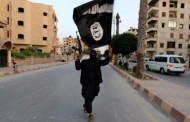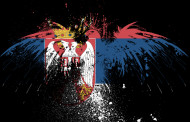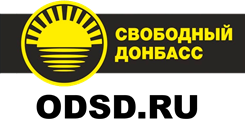Dozens of military personnel and some civilians killed and injured after a car bomb rocked the Turkish capital of Ankara, Feb. 17. The blast occurred a near the military headquarters, parliament and government buildings in the administrative heart of Turkey. The car bomb reportedly targets military personnel when it stopped at a set of traffic lights. 27 members of the Turkish Armed Forces and one civilian died and 61 wounded.
No group has said so far it was behind the attacks. However just hours after the attack, Turkish Prime Minister Ahmet Davutoglu explained: “In light of the information we have obtained, it has been clearly identified that this attack was carried out by the members of a terrorist organization inside Turkey, together with a YPG individual who had crossed from Syria.” Turkish President Recep Tayyip Erdogan said they had been supported by the outlawed Kurdistan Workers Party (PKK) in Turkey. Turkish warplanes bombed PKK camps in northern Iraq late aftermath of the attack.
The day after Davutoglu has announced:
“A Syrian national, identified as 1992-born Salih Necer, with links to the People’s Protection Units (YPG) was identified as the perpetrator of the attack; the attacker received assistance from outlawed Kurdistan Workers’ Party (PKK) militants in Turkey.” Both PKK and YPG deny involvement. Kurdish Democratic Union (PYD ) chief Salih Muslim replied to Davutoglu’s accusations “PYD has nothing to do with the Ankara explosion. The Turkish government fabricates accusations against the Kurds in Syria for finding a pretext to legitimize their intervention.” MMeanwhile,co-leader of the KCK (PKK umbrella group), Cemil Bayık as quoted by the Firat news agency was saying “we did not know who was responsible for the Ankara bombing. But the attack, could be an answer to massacres in Kurdistan.” He was “referring to the final military operations by the Turkish army in pro-Kurdish cities like Sırnak and Diyarbakır,” Firat said.
The AK Party is approving a text condemning the terrorist attacks, the Republican and nationalist parties while the pro-Kurdish party The People’s Democratic Party( HDP) has refused to sign. “We strongly condemn the inhumane terrorist attacks directed at our unity, peace and security” the statement read. The statement also noted that terror will never reach its goals and that Turkey will never submit to terrorism. Idris Baluken, Group Deputy Chairman of HDP, said his party has objections to the context of the text. “We (as HDP) also condemn the attack causing civilian casualties. However, we indicated other attacks were missing [from the condemnation], such as those that occurred in Diyarbakır, Suruç, Ankara and Sultanahmet, and the casualties that occurred during the curfew” Baluken said.
RISING NUMBER OF ATTACK
It has been the second suicide bomb attack in Ankara in 4 months. Moreover, many deadly attacks took place in Turkey in the last months. The number of attacks continues to rise.
June 2015, Diyarbakır Rally Bombings, the bombing took place two says before June 2015 general elections during a rally of the pro-Kurdish HDP’s rally, 4 killed, more than a hundred injured. HDP held ISIL responsible while PM Davutoglu termed it a “provocation.”
July 2015, Suruc bombing, a suicide bomber killed 33, more than a hundred were wounded. The bombing took place in the Suruc district of Sanliurfa, while university-ages students were celebrating their arrival to Suruc, and were planning a trip to reconstruct Kobani, the Kurdish city in Syria which was under siege. ISIL claimed responsibility.
August 2015, Istanbul bomb explosion, seven people, including five police officers, were injured as a result of a bomb explosion at a police station in Istanbul.
The Istanbul governor’s office said that the PKK is responsible.
October 2015, Igdır- Hakkari bomb attack, 14 police in Igdır Province were killed in bomb attacks by PKK. Two days later 16 Turkish soldiers were killed in twin roadside bomb attack in Hakkari Province.
October 2015, Ankara Rally bombing, tho suicide bombers targeted a peace rally in Ankara, 103 killed, hundreds wounded. That was the deadliest of its kind in Turkey. No organization claimed responsibility. However, it was suspected there were links between suicide bombers and the Islamic state.
December 2015, Istanbul, a parcel bomb planted near a metro station injured five people. No group claims responsibility. Again on December, a cleaner killed in an attic in Istanbul’s second airport Sabiha Gokcen. It was stated that the bombing was a response to the government’s military actions against PKK.
January 2016, Istanbul Bombing, a Syrian suicide bomber who was affiliated with ISIS killed ten people, including German tourists.
February 2016, Ankara Bombing, finally this month besides the Ankara bombing, the day after, a bomb attack hit a military convoy in Diyarbakır and seven soldiers died.
“SOMEONE CALL THE TURKISH INTELLIGENCE SERVICE”
Similar to Diyarbakır, Suruc and Ankara rally bombings, just after Ankara car bombing, a publication ban has declared by the Radio and Television Supreme Council (RTUK ), besides the fact that social media platforms such as Twitter and Facebook have been slowed down. The community is angry with the government that the government neither took responsibility nor precautions. One of the Twitter users has twitted ” someone call the Turkish Intelligence Service that there is a bomb attack in the heart of the country.” Turkish Intelligence Service (MIT) is known to have 8,000 personnel inside and outside of Turkey. So, did MIT not know about the blast in the heart of Turkish capital Ankara or any of the blasts in last 12 months? Peoples’ Democratic Party (HDP) openly blamed the Turkish state and the government for conducting the previous attacks and took part in the Diyarbakır and Ankara rallies. PKK and YPG had denied Davutoglu’s accusation which he expressed a few hours after the attack. ISIL is another suspected group, even Russia and Assad regime are said to have a finger in the blast. However why did none of these groups take responsibility while terrorist attacks are the way of giving a message to whom who may concern? How the government can easily accuse pro-Kurdish groups, just after the bomb attack, even as they deny?
Thinking of the Reichstag fire, which is a turning point in the history of Germans. In 1933, the Reichstag Building, which housed the German Parliament was gutted by a massive fire. A young Dutch council Communist was arrested and executed for the crime and was presented as proof that communists were planning to overthrow the German government. Fearful that a civil war was soon to break out, German citizens allowed Hitler extra-constitutional power to deal with the perceived threat. This would also set in motion an ethnic and religious scapegoating which the Nazi Party would use to further institutionalize its nationalist and genocidal campaigns. I wonder if the young Dutch, Van der Lubbe, ever really knew for what he would be executed for?
By the way, do you think the Ankara suicide bomberm 1992-born young Salih Necer, has ever really known for what he killed and for whom he died?
Special thanks to Joshua Tartakovsky, for his contributions to this article.
comments powered by HyperComments





